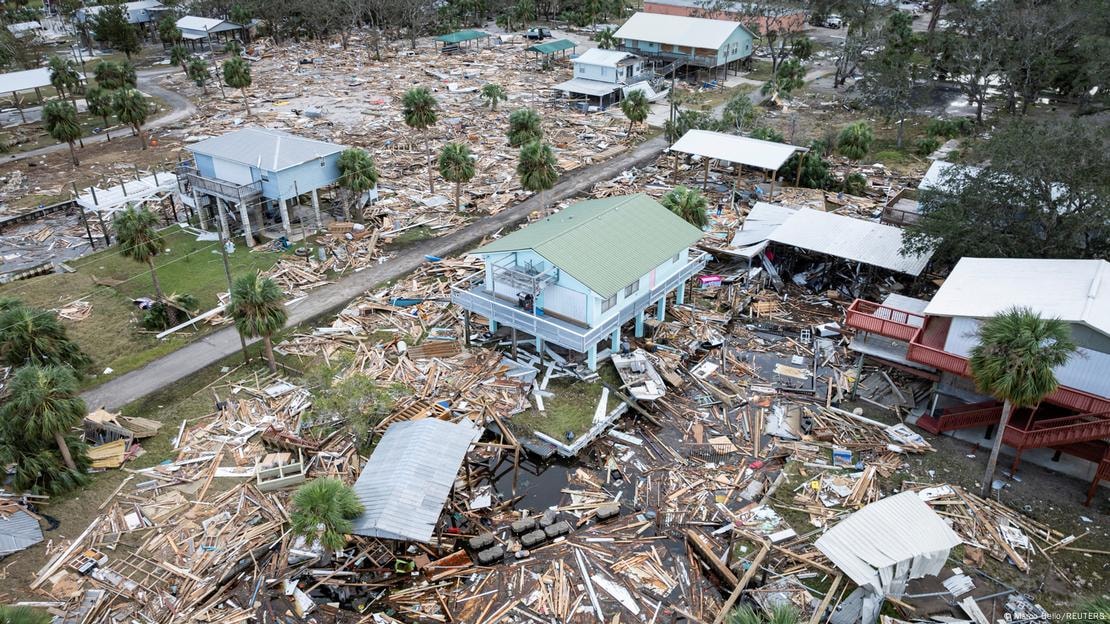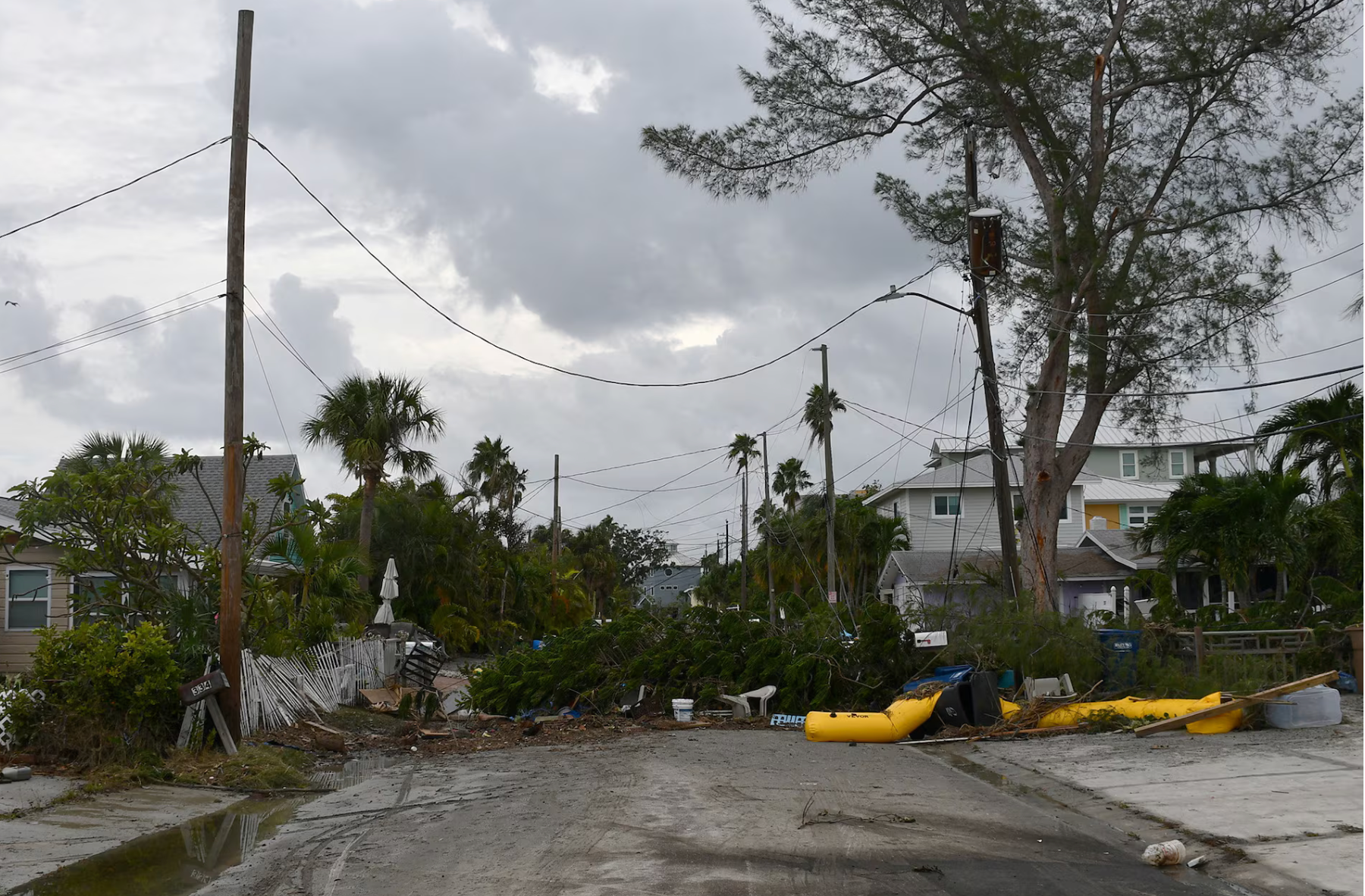US: At least 90 people died, damage could reach 100 billion USD due to Hurricane Helene
On September 29 (local time), the southeastern United States began cleaning up and recovering, after Hurricane Helene swept through, killing nearly 100 people. The storm also caused power outages in areas where millions of people live, destroyed roads and bridges, and caused severe flooding from Florida to Virginia.
The storm has claimed at least 90 lives in North Carolina, South Carolina, Georgia, Florida, Tennessee and Virginia, according to a Reuters tally of local and state officials. Officials fear more bodies may be found.
Cell phone towers were down across the area, leaving hundreds of people without contact with their families and listed as missing.
Estimates of damage ranged from $15 billion to more than $100 billion, according to insurers and forecasters over the weekend, as water systems, communications and key transport routes were affected. The property damage and economic toll will become clearer as officials assess the situation.

In North Carolina, most of the deaths were in Buncombe County, where 30 people died, Sheriff Quentin Miller said on a video call with reporters. County Manager Avril Pinder said she was asking the state for emergency food and water supplies. Streets in the beautiful city of Asheville were flooded.
"This is a devastating disaster of historic proportions," Governor Roy Cooper told CNN. "Everybody I've talked to in western North Carolina says they've never seen anything like this."
Search and rescue teams from 19 states and the US government have arrived in the state, Mr. Cooper said, adding that some roads could take months to repair.

In Flat Rock, North Carolina, there were widespread power outages, and people had to wait hours for gas.
“The grocery stores are closed, the cell service is down,” said Chip Frank, 62, who had been waiting in line for more than three hours. “It’s all at these gas stations. You can’t go anywhere, and it’s scary.”
About 2.7 million customers in the southern United States were without power on September 29, a 40% decrease from September 27, after storms brought unprecedented flooding, fierce winds and dangerous conditions that spread hundreds of miles inland, an Energy Department official said.
South Carolina has recorded 25 deaths, while Georgia has recorded 17 and Florida 11, according to those states' governors. CNN, citing local and state officials, reported a total of 93 deaths across the southern United States.

President Joe Biden plans to visit affected areas this week, when he can do so without hindering emergency services, the White House said.
"It's tragic," Mr. Biden told reporters on September 29, pledging recovery support after declaring major disasters in Florida and North Carolina and states of emergency for Florida, North Carolina, Tennessee, South Carolina, Georgia, Virginia and Alabama.
Republican presidential candidate Donald Trump will visit Valdosta, Georgia, on September 30 to be briefed on storm damage and "facilitate the distribution of relief supplies," his campaign said.
Hurricane Helene slammed into Florida's Gulf Coast on the evening of September 26, bringing days of heavy rain and destroying homes that had stood for decades.
At Horseshoe Beach, on Florida's Gulf Coast about 75 miles west of Gainesville, a resident named Charlene Huggins searched through the rubble of her destroyed home and found a coat on September 28.

"Five generations have lived in this house, from my grandmother, my father, me, my daughter, my son and my granddaughter," Huggins said. "So there are a lot of memories here. This is really heartbreaking."
Not far away, James Ellenburg stood on land that had been in his family for four generations. The roof now lay on the ground, the walls blown away.
In coastal Steinhatchee, waves as high as 8 to 10 feet swept away mobile homes. Other areas saw waves as high as 15 feet.
In the small nearby community of Spring Warrior Fish Camp, residents were assessing the damage and still waiting for help from rescuers or emergency responders.


